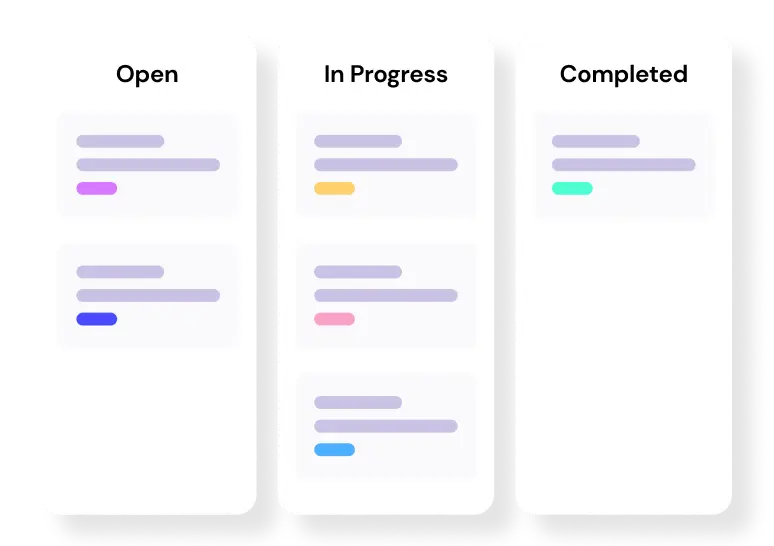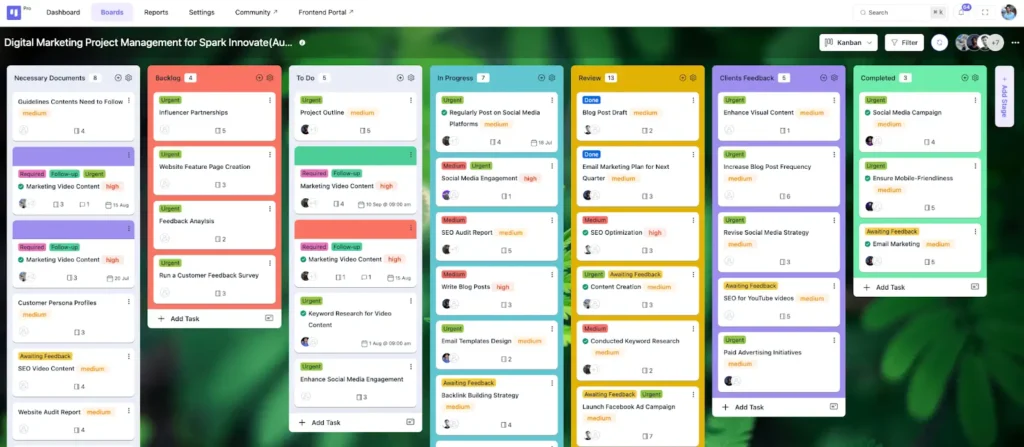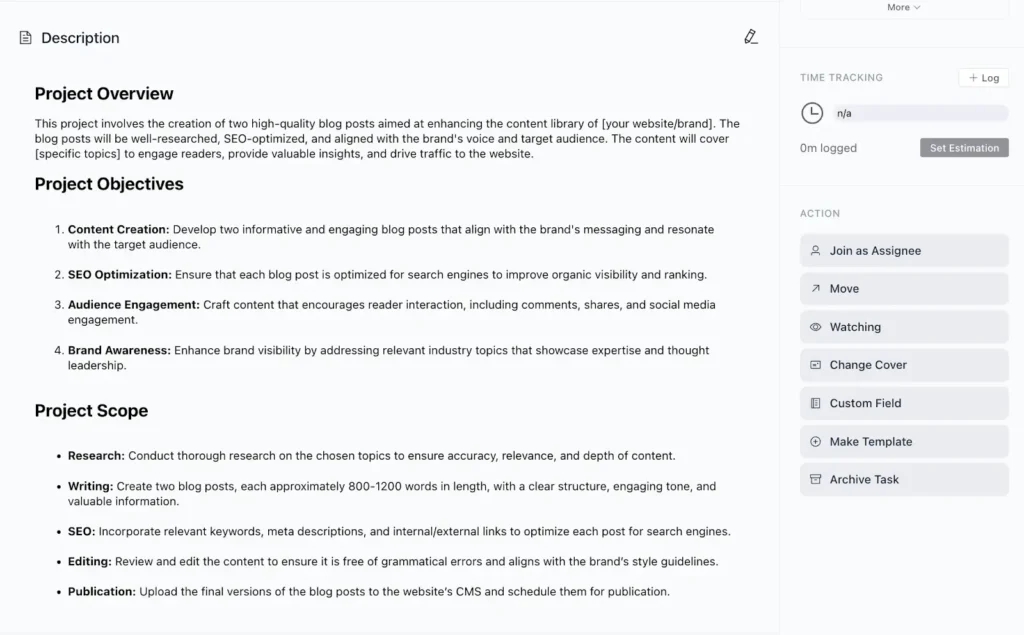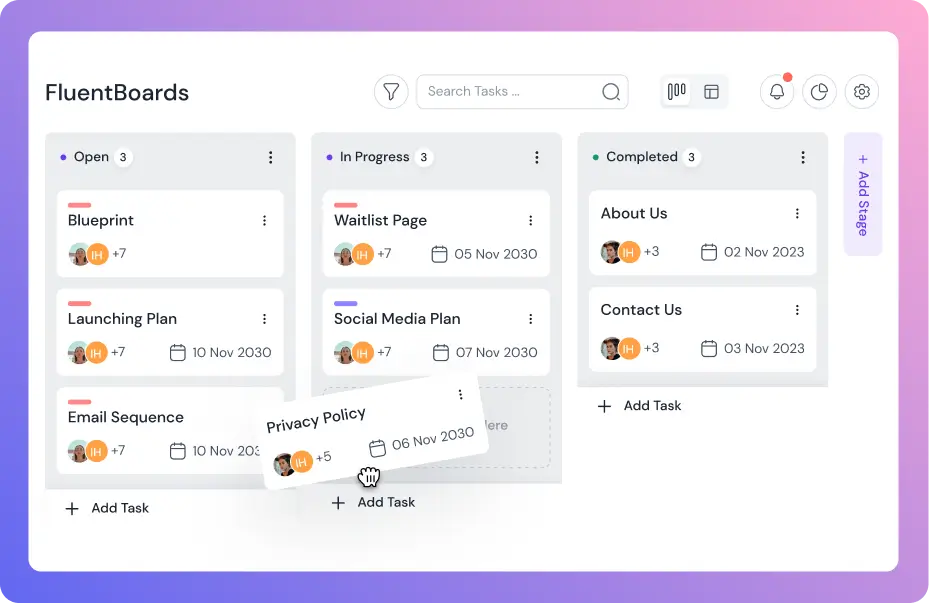
Why is Project Management Important? [9 Key Reasons + Tips]
“Trying to manage a project without project management is like trying to play a football game without a game plan.”
Karen Tate
Imagine stepping onto a football field with no homework, no clear roles, and no proper game plan!
The players would run in every direction, unsure of what to do, when to move, or how to react! Chaos, right?
Well, the same things happen when you start managing a project without a solid plan.
And, in this blog, we will shed light on the importance of project management and explore every important aspect of it.
But, before we dive into why project management matters, let’s first understand what it is.
What is Project Management?
Project management is the process of planning, organizing, and overseeing projects to achieve specific goals. At its core, it’s the process that ensures projects are completed on time, within budget, and to the satisfaction of all stakeholders.
According to PMI, a typical project management lifecycle includes five main stages:
- Initiation: Defining the project’s goals and assessing its value
- Planning: Outlining the project’s scope, identifying risks, and creating a detailed plan
- Execution: Carrying out the project tasks according to the plan
- Monitoring: Tracking project progress, making adjustments as needed
- Closure: Delivering the final product and reviewing the project’s success
So, in simpler terms, we can say that project management is all about using knowledge, skills, tools, and resources to get a project done right.
Why is Project Management Important?
Project management isn’t just about keeping projects on track; it’s about ensuring they deliver real value to the organization.
From assembling the right project team, setting clear goals, dividing tasks, assigning them, monitoring progress, and successfully completing the project—everything falls under the umbrella of project management!
So, when we say project management is important, it’s essential for…
Practical project planning
Project planning is the cornerstone of successful project management!
Creating a plan that balances ambition with feasibility sets the stage for success. It involves setting achievable goals, realistic timelines, and budgets that reflect the available resources and constraints.
And, by adhering to an effective project management approach, you can craft a project plan that prevents scope creep and ensures completion within the set time, budget, and resources.
Tip: Reading a good project management book can sharpen your planning accuracy by deepening your understanding of project management fundamentals
Clear-cut focus and objectives
A well-defined project management process ensures that the team has a clear understanding of the project’s objectives and focus.
This clarity helps in aligning the efforts of all team members toward a common goal, reducing confusion and enhancing productivity.
Strategic alignment
One of the most important aspects of project management is its ability to align projects with the organization’s strategic goals.
A project that is not aligned with these goals can waste resources and fail to deliver value. And project management helps in delivering projects that contribute to the organization’s growth and success, making it a key driver of business value.
Smart resource management
Effective project management involves making the most of the resources available, including time, money, and human capital.
By carefully planning and allocating resources, you can ensure they are used efficiently and effectively.
Keep in mind that maximizing resources not only helps you meet deadlines and stay within budget but also ensures a high-quality outcome without overburdening your teammates.
Better risk management
Every project brings both expected and unexpected risks! And, to lead your project to success, you must face these risks and take the necessary steps to mitigate the consequences.
This is where the value of a solid project management process shines!
Project management helps you identify potential risks and develop strategies to address them before the project even begins.
Effective communication
Clear communication is the backbone of successful project management.
Whether it’s a new task, a new challenge, or a change in the plan, your team members must stay updated to work collaboratively.
And, regular communication, through meetings, reports, and updates, can help in keeping everyone on the same page.
Besides, effective communication often extends beyond the team! To ensure that your client’s expectations are met, you might need to involve other stakeholders, such as clients, in the process—and project management takes care of this too!
Enhanced team collaboration
Project management provides a structured approach, ensuring every team member understands their roles and responsibilities, making project team management a breeze. This level of control is crucial for maintaining momentum and ensuring smooth project progress.
By clearly assigning tasks and setting deadlines, the team stays aligned and focused on achieving the project’s objectives. This clarity prevents confusion and fosters accountability!
Progress tracking
No need to mention, continuous monitoring is yet another key component of project management.
Regular status updates provide insight into what has been accomplished and what still needs to be done. This helps identify any deviations from the plan early, allowing for timely corrections.
And the result?
Well, yet another successful project!
Ensuring timely completion
One of the primary reasons project management is crucial is its role in meeting deadlines.
Project management breaks down the project into smaller, manageable tasks, with timelines attached to each. This approach significantly reduces the risk of missing deadlines.
However, without proper planning, projects can easily run over schedule, leading to increased costs and frustrated stakeholders!
What Happens without Project Management?
When we say project management is important, we’re also pointing out the risks of not having it. Even the most well-intentioned projects can quickly go off track without proper management.
Here are some key issues that arise in the absence of effective project management:
- Lack of direction: Teams may struggle to understand the project’s goals, leading to confusion and misunderstanding
- Poor resource management: Without a structured approach, resources such as time, money, and manpower are often misallocated
- Increased risk: Failing to identify, assess, and mitigate risks can cause unexpected problems, potentially leading to project failure
- Communication breakdowns: Fragmented communication among team members and stakeholders often results in misunderstandings and delays
- Quality issues: The lack of regular monitoring and quality control can lead to rework, dissatisfied clients, and potential damage to the company’s reputation.
- Missed deadlines: Without a clear timeline and accountability, projects are more likely to experience delays, resulting in frustration among stakeholders and missed opportunities.

Level up your WordPress project management game with this Trello equivalent solution – where limitless possibilities come at an unbeatable price!
5 Quick Tips for Effective Project Management!
No, we’re not here with any magical formula! In fact, in most cases, magic happens when you strictly adhere to the basics!
So, to ensure all your projects are a success –
Plan like a pro
Planning is the key to success! So, don’t hesitate to spend enough time on it.
First, understand what you want to achieve, then break the project into tasks.

So, go ahead, split your project into tasks, set deadlines, prioritize, and assign them to your team. To ensure a more strategic approach to success, remember to divide your project into stages.

Note: FluentBoards doesn’t put any speed bumps in the way of scalability—unlimited projects and tasks, unlimited file-sharing, and unlimited assignees!
Use resources wisely
Don’t overburden your team with tasks. Instead, work smartly by reviewing who is handling what before assigning new responsibilities. Ensure fair distribution of work and choose the right project team structure by thoroughly evaluating the project requirements

Stay focused
Losing focus is one of the main reasons why most projects fail. To be honest, it’s pretty normal to drift away from the original goal halfway through a project!
That’s why it’s important to keep everything sorted and written down from day one.

When everything is documented clearly, it ensures everyone stays on track—whether they’ve been involved since the start or joined halfway through.
Communicate clearly
Execution heavily relies on effective communication! If you can’t deliver your message clearly, you can’t expect things to be done exactly the way you need!

That’s why it’s essential to ensure all team members are well-connected, updated, aligned, and fully informed.

Keep an eye on progress
Most projects follow a common lifecycle—planning, monitoring, improvisation, and execution!

To ultimately achieve success and keep everything on track, you need to keep a close eye on every detail, every project management KPI. And remember, it’s not finished until it’s truly finished!
Discover some more project management tips!
Plan, Execute, Monitor, Succeed!
Just as a football team relies on a well-thought-out game plan to win, businesses depend on project management to deliver results, meet deadlines, and satisfy stakeholders.
In this blog, we’ve focused on and explained the importance of having a solid and effective project management strategy. We hope you now have a thorough understanding of why project management is important!
That’s all for today! Don’t forget to share your thoughts in the comments!
Let’s redefine project management with FluentBoards!
Get Tips, Tricks, & Updates
We won’t send you spam.
















Leave a Reply